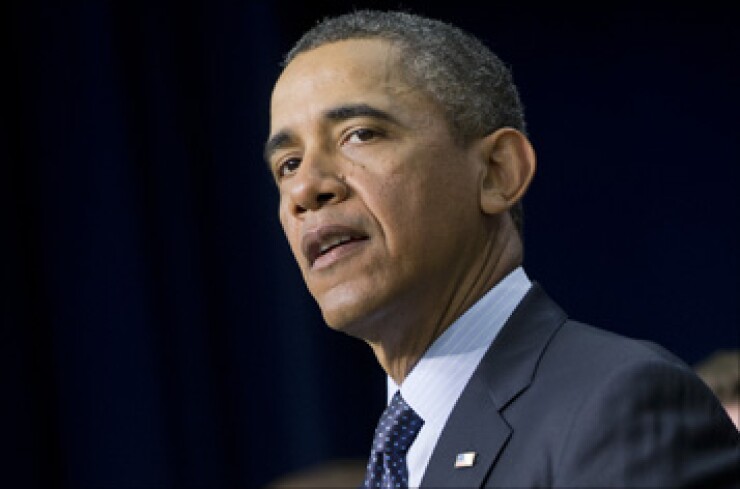
DALLAS -- The six-year, $325 billion transportation bill set for a vote later this week in the House does not provide enough infrastructure funding to suit President Obama, the Office of Management and Budget said in an official statement of administration policy.
"While the Administration is encouraged by the bipartisan effort in the House to advance a surface transportation bill, the current bill has significant shortcomings," OMB said.
The measure "maintains funding at current levels, which are widely acknowledged to be below the level needed to maintain this country's surface transportation infrastructure, let alone improve it," OMB said in the statement released Monday night.
The House Transportation and Infrastructure Committee last month approved the Surface Transportation Reauthorization and Reform Act of 2015 (H.R. 3763) that would provide $261 billion of federal highway funding and $55 billion for mass transit.
By comparison, President Obama's proposed six-year, $478 billion Grow America Act (H.R. 2410) would allocate $317 billion for highway projects and $114.6 billion for public transit.
The six-year, $360 billion DRIVE Act (H.R. 22) passed by the Senate in late July includes $273.4 billion for highways and $59.3 billion for transit.
OMB said the President also objects to the 80% cut to the Transportation Infrastructure Finance and Innovation Act low-cost loan program in the House bill.
The House committee's proposal would provide $200 million per year of TIFIA loans, which totaled $1 billion in 2015. The Senate bill would fund the TIFIA program at $300 million per year.
"TIFIA has supported many of the nation's largest and most innovative public-private partnerships and enjoys immense support among local and state governments," OMB said.
The OMB, however, stopped short of threatening the President would veto the measure if it is passed by Congress. "We look forward to continuing to work with the Congress to pass a more meaningful transportation bill," OMB said.
The House Rules Committee adopted an amendment Monday night that would reduce the revenue offsets needed to fully fund the first three years of the proposed bill to about $35 billion from the $45 billion in the Senate bill.
The lower offset level reflects the $8 billion of general revenue transferred to the Highway Trust Fund in late May by a three-month reauthorization (PL 114-41) and an unexpected increase in collections from a HTF-dedicated tax, said amendment sponsor Rep. Dave Reichert, R-Wash.
A fact sheet from the House Ways and Means Committee said the $35 billion transferred into the HTF by the offsets would keep the highway fund functional through fiscal 2018.
In addition to adopting the revised offset amendment into the bill, the House Rules Committee set 29 transportation-related amendments for floor action. The committee was set to meet late Tuesday to consider more than 100 non-transportation policy amendments that have been filed, including a reauthorization of the Export-Import Bank.
The House is expected to vote on the transportation bill later this week before breaking for a week-long recess on Friday. The House plan must be reconciled with the Senate bill and passed by Congress before the current 22-day HTF extension expires on Nov. 20.
Newly elected House Speaker Paul Ryan, R-Wis., said Tuesday that the bill is in effect a three-year measure because that is how long the revenue gap is covered. Both the Senate and House versions include provisions that would terminate the funding after three years if more revenue is not provided.
"It's three years of funding," Ryan said. "If we can up with more financing down the road, we can add more years to the bill."





